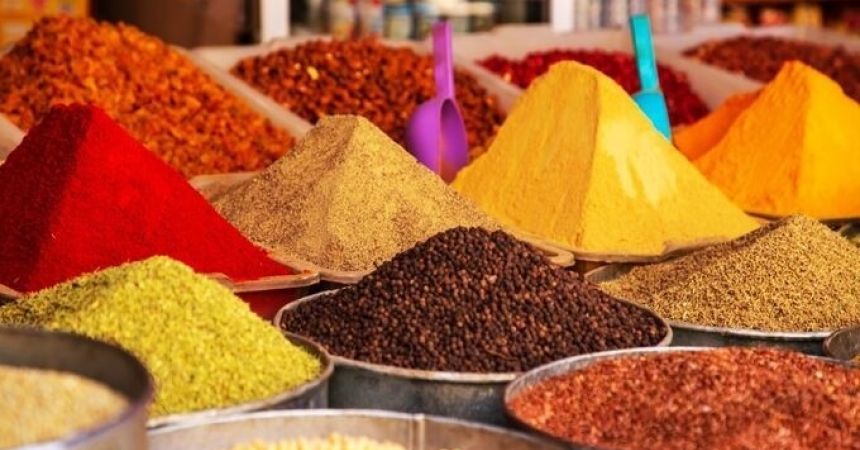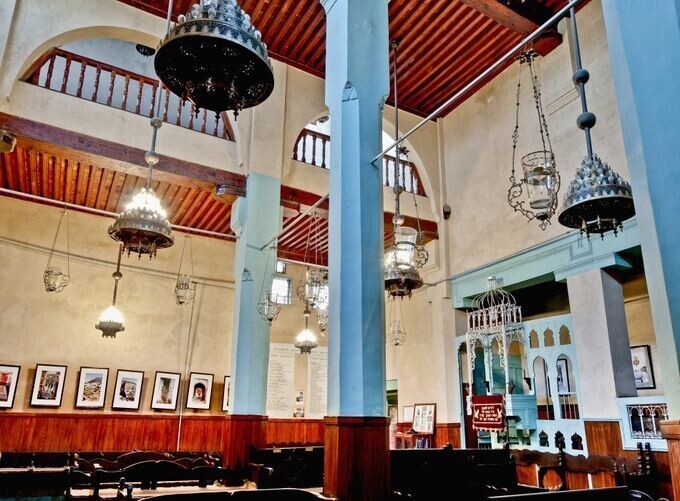
Visiting Morocco in Ramadan: What You Should Know
Ramadan, the ninth month of the Islamic calendar, is a deeply spiritual and culturally significant time in Morocco. For travelers, visiting during this holy month offers a unique opportunity to experience Moroccan traditions and hospitality in a special way. However, it also requires some planning and awareness to ensure a smooth and respectful trip. This guide provides everything you need to know about visiting Morocco during Ramadan.
What is Ramadan?
Ramadan is the most sacred month in Islam, during which Muslims fast from dawn to sunset. Fasting includes abstaining from food, drink, smoking, and other physical needs during daylight hours. It is a time of reflection, prayer, charity, and community. The fast is broken at sunset with a meal called Iftar, and the pre-dawn meal before fasting begins is called Suhoor.
Why Visit Morocco During Ramadan?
Traveling to Morocco during Ramadan can offer unique and enriching experiences:
Cultural Immersion: Witness Moroccan traditions and experience the sense of community during Iftar.
Quiet Days, Vibrant Nights: Mornings are calm, but the nights are alive with festive gatherings and late-night shopping.
Fewer Tourists: Ramadan is not the peak tourist season, so popular sites are less crowded.
Special Dishes and Traditions: Moroccan Ramadan cuisine includes unique dishes like harira (soup) and chebakia (honey-coated pastries).
What to Expect During Ramadan in Morocco
While visiting Morocco during Ramadan is a rewarding experience, it also comes with some adjustments:
Altered Business Hours:
Many businesses, government offices, and shops operate on reduced hours, typically closing earlier in the afternoon.
Some restaurants and cafes may remain closed during the day, especially outside tourist areas.
Quieter Mornings:
Streets and markets are less active during fasting hours, as many locals rest or prepare for Iftar.
Lively Evenings:
After sunset, the streets come alive with people gathering for Iftar, shopping, and socializing.
Charity and Generosity:
Ramadan emphasizes charity, and you may witness locals distributing food to the less fortunate, creating a warm and welcoming atmosphere.
Top Activities and Experiences During Ramadan
-
Participate in Iftar
Iftar, the meal to break the fast, is a communal and joyous event in Morocco. Many restaurants and hotels offer Iftar meals, but joining a local family or community gathering provides a more authentic experience.
What to Expect: Dates, water, and harira soup are common starters, followed by hearty dishes like tajine, couscous, and pastries.
Tip: Ask your hotel or guide to arrange an Iftar experience with a local family.
-
Explore the Night Markets
After Iftar, the streets and markets (souks) fill with life. Vendors sell everything from fresh produce to handcrafted goods, and the festive atmosphere is contagious.
Best Markets: Explore the Jemaa el-Fnaa square in Marrakech or the souks of Fes for a vibrant experience.
Tip: Bargain respectfully, and enjoy the lively energy of the post-Iftar crowds.
-
Attend Cultural Events
During Ramadan, some cities host cultural events, including Sufi music performances, storytelling, and religious lectures.
Where to Go: Cities like Fes and Rabat are known for their rich cultural offerings during Ramadan.
Tip: Check local schedules or ask your hotel about events happening during your visit.
-
Visit Religious Sites
While non-Muslims cannot enter mosques in Morocco, the exteriors of mosques like the Hassan II Mosque in Casablanca or the Koutoubia Mosque in Marrakech are breathtaking and worth visiting.
Tip: Be respectful of prayer times and avoid taking photos of worshippers without permission.
-
Enjoy Special Ramadan Foods
Moroccan cuisine during Ramadan is a treat. Look out for:
Harira: A traditional soup made with lentils, chickpeas, and tomatoes.
Chebakia: Honey-coated sesame cookies.
Briouats: Savory pastries filled with meat or cheese.
Sellou: A sweet, nutty treat made from roasted flour, almonds, and honey.
Practical Tips for Traveling During Ramadan
-
Plan Around Altered Schedules
Attractions and Tours: Check the opening hours of tourist attractions, as some may close early during Ramadan.
Transportation: Trains and buses operate as usual, but schedules may change during Iftar and Suhoor times.
-
Respect Local Customs
Avoid eating, drinking, or smoking in public during daylight hours as a sign of respect for those who are fasting. This is especially important in rural areas and less touristy cities.
-
Dress Modestly
Morocco is a conservative country, and modest dress is appreciated, particularly during Ramadan. Covering shoulders and knees is recommended for both men and women.
-
Stay Hydrated
Carry a reusable water bottle and drink plenty of water during non-fasting hours, especially in the heat.
-
Be Flexible
Allow for slower-paced days and be prepared for potential delays in transportation or services.

Best Places to Visit During Ramadan
While all of Morocco offers unique experiences during Ramadan, some cities and regions stand out for their atmosphere and activities:
Marrakech
What to Do: Explore Jemaa el-Fnaa in the evening, visit the Jardin Majorelle during the day, and enjoy an Iftar meal at a rooftop restaurant.
Tip: Take a horse-drawn carriage ride through the quieter city streets in the morning.
Fes
What to Do: Wander the medina, watch artisans at work, and enjoy cultural performances in the evenings.
Tip: Visit the Chouara Tannery in the morning when activity is at its peak.
Chefchaouen
What to Do: Stroll the blue-painted streets, take photos in the serene alleys, and enjoy the peaceful ambiance.
Tip: Chefchaouen’s relaxed pace makes it an excellent destination for Ramadan.
Sahara Desert
What to Do: Go on a camel trek, watch the sunset over the dunes, and enjoy a Berber-style Iftar under the stars.
Tip: Ramadan in the desert offers a unique blend of adventure and reflection.
Casablanca
What to Do: Visit the Hassan II Mosque, walk along the Corniche, and enjoy the city’s cosmopolitan Ramadan celebrations.
Tip: Book an Iftar meal at a beachfront restaurant for stunning views.
Advantages of Visiting Morocco During Ramadan
Cultural Insight: Gain a deeper understanding of Moroccan traditions and values.
Fewer Crowds: Enjoy less crowded tourist attractions and a more intimate travel experience.
Unique Atmosphere: Experience the magical contrast of calm mornings and lively evenings.
Special Foods: Taste Ramadan-exclusive dishes and desserts that aren’t always available at other times of the year.
Challenges of Visiting Morocco During Ramadan
Reduced Daytime Options: Limited daytime dining and shopping can be inconvenient.
Altered Schedules: Shortened business hours may require more planning.
Heat and Hydration: If you’re traveling during the hotter months, staying hydrated can be challenging when dining options are limited.
How to Overcome Challenges
Stay in Tourist-Friendly Areas: Cities like Marrakech and Fes have restaurants and cafes catering to non-fasting visitors.
Plan Ahead: Research opening hours and make reservations for Iftar meals.
Stay Cool: Avoid strenuous activities during the hottest part of the day.
Sample Itinerary: A Week in Morocco During Ramadan
Day 1: Arrive in Casablanca
- Visit the Hassan II Mosque and explore the Corniche.
Day 2: Travel to Chefchaouen
- Stroll through the blue streets and enjoy a peaceful Iftar in the town square.
Day 3-4: Explore Fes
- Visit the medina, enjoy a cooking class, and watch artisans at work.
Day 5: Journey to the Sahara Desert
- Take a camel trek and spend the night in a desert camp with a traditional Iftar meal.
Day 6-7: Experience Marrakech
- Visit the Jardin Majorelle, explore Jemaa el-Fnaa, and shop in the souks after Iftar.
Unforgettable Morocco Holidays: Culture, History, and Fun
Visiting Morocco during Ramadan offers a unique opportunity to experience the country’s culture and traditions in a special way. While there are some adjustments to make, the rewards of witnessing Iftar celebrations, exploring lively night markets, and enjoying traditional Ramadan dishes make it a truly enriching experience. By respecting local customs and planning ahead, you can make the most of your Moroccan adventure during this sacred month.



